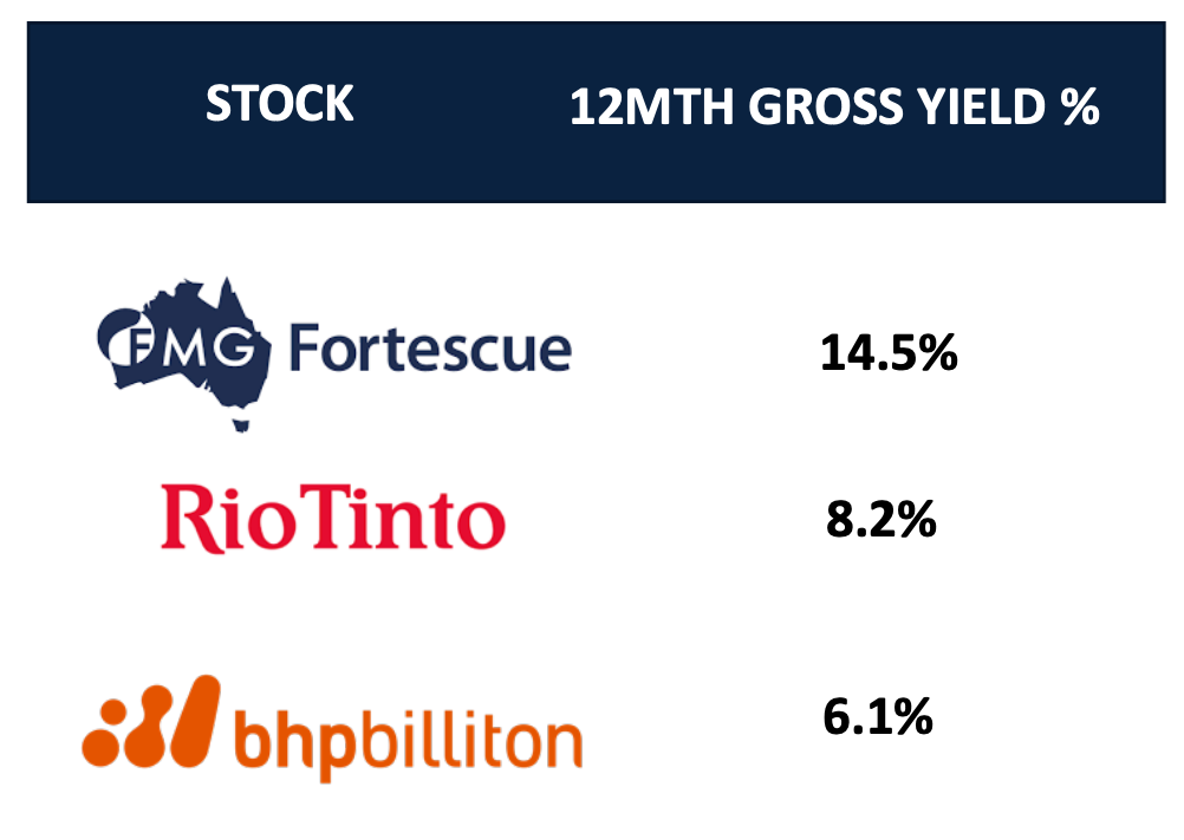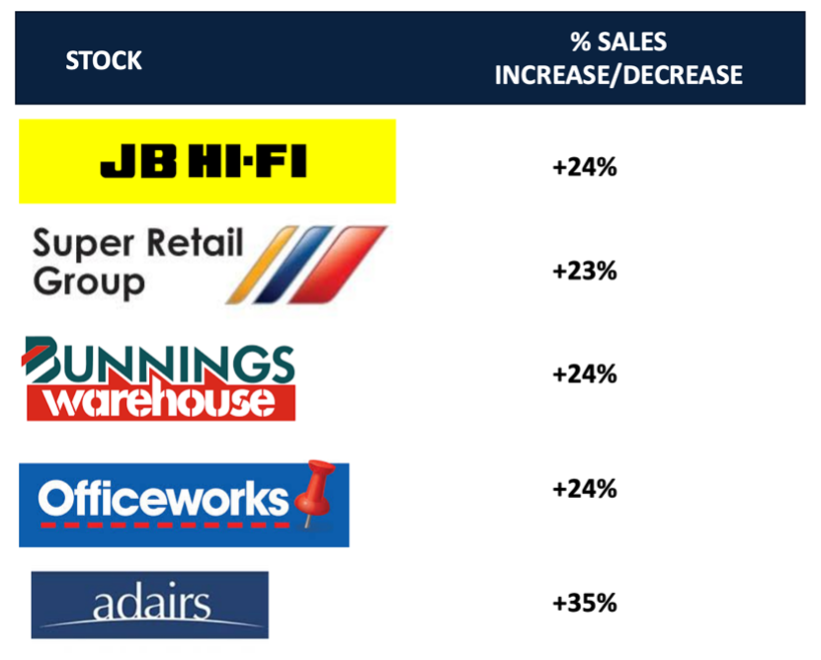
News

6 Apr 2021 - Green hydrogen: a European case study

1 Apr 2021 - Managers Insights | Montgomery Investment Management
|
Damen Purcell, COO of Australian Fund Monitors, speaks with Gary Rollo, Portfolio Manager of the Montgomery Small Companies Fund. The Montgomery Small Companies Fund was started in September 2019 and has come through a pretty volatile period, outperforming the ASX Small Ordinaries and broader ASX 200 Total Return Index by significant amounts. Since inception the fund has returned 20.39% with a standard deviation of just 2.74%.
|

1 Apr 2021 - From the desk of Amit Lodha
|
From the desk of Amit Lodha Amit Lodha, Portfolio Managers, Fidelity International February 2021
Funds operated by this manager: Fidelity Asia Fund, Fidelity Australian Equities Fund, Fidelity China Fund, Fidelity Future Leaders Fund, Fidelity Global Emerging Markets Fund, Fidelity India Fund |

1 Apr 2021 - The 4 Bubbly Pockets of markets showing heightened risk for investors
|
The 4 Bubbly Pockets of markets showing heightened risk for investors Andrew Mitchell, Senior Portfolio Manager, Ophir Asset Management 10 March 2021 The ongoing surge in stock prices -- including the NASDAQ, now up almost 100% from its March 2020 low - has many investors fretting that stock markets are now in bubble territory and at risk of a crash. Indeed, according to one survey, the majority of investors now believe the US market is in bubble territory. It has become increasingly clear over the last few weeks that, whilst we don't believe the markets we invest in, Australian and global small and mid-caps, are in a bubble, some parts of investment markets are frothy, with stretched investor sentiment. Below, we also look at four pockets of exuberance in the market (Bitcoin, US IPOs, call options and growth-stock trading volumes) that -- while not being the 'four horsemen of the apocalypse' portending a major bear market -- are indicators that clearly suggest investors do need to be managing risk. At Ophir we are remaining focused on investing in quality companies at reasonable valuations, but also stress testing those companies' likely performance during a savage sell off, and in this environment, we are urging other investors to begin taking similar risk management measures. Exuberance Exhibit 1: Bitcoin The first bubbly pocket is Bitcoin. We can't help but notice the amount of noise surrounding the digital currency. We are constantly asked about its valuation. Even Uber drivers ask for our thoughts. And ads for Bitcoin trading courses and transacting platforms are becoming ubiquitous. This is not unexpected given the rise in price of Bitcoin over the last few years, putting other financial market bubbles in the shade (see chart). The Bitcoin ascent Importantly, though, Bitcoin is somewhere between a collectible and a currency (and not a particularly good one yet). So, in our view, it doesn't qualify as an asset because it doesn't generate cash flows from which to value it. This makes it ripe for speculation and a good barometer for when financial market sentiment is high. Exuberance Exhibit 2: SPAC IPOs Another measure of market exuberance is IPO issuance, which has ramped up in the US, particularly through what are called Special Purpose Acquisition Companies, or SPACs for short. These vehicles, often called 'blank cheque' companies have a two-year window to find a private company target which they merge with to effectively list it, or else hand back the capital to investors. Private office leasing company WeWork is the latest in a long line said to be in talks with a SPAC to go public. IPO issuance tends to increase when company owners think they can raise capital, or sell out, at heightened valuations in the market, and generally not when it represents good value for buyers. SPACs have been around for a number of years, but they raised six times the amount of money in 2020 than they did in 2019. SPACs have emerged from a relative backwater to become the dominant form of listing for US companies, now currently comprising over 50% of IPO activity in the US. Their boom has come with SPACs bringing early-stage higher-growth businesses, particularly technology businesses, to market. There is huge demand for these stocks from retail traders with more time on their hands and less aversion to volatility. The demand has been fuelled by interest rates near 0%, which means the opportunity cost for investors of having their cash tied up in a SPAC waiting for an acquisition is low. The 2020 SPAC IPO boom has continued into early 2021 (as of 21 January 2021)
Exuberance Exhibit 3: retail call options This next measure of exuberance is tied to the democratisation of investing that has given retail investors cheap access to trading platforms and financial information. When combined with government stimulus cheques and extra time on their hands, small retail traders have been investing heavily in call options on individual listed companies. These options essentially give the buyer the right to buy a share in a company at a certain price (strike price) and the trader executes the option if the share price rises above the strike price. They are generally bought if the investor is bullish on the company and its price is rising higher; but they are popular with retail traders because options are a cheaper way to get exposure to that potential price rise. As can be seen in the chart below, call option volumes for small parcels (less than 10 contracts) that retail traders tend to buy, have gone through the roof over the last year, and particularly the last few weeks. Call Option Buy Minus Sell at Open for investors with less than 10 contracts for options on individual US equities (In million contracts. Last observation is for the week ending 29th Jan 2021)
Such betting by often value agnostic retail traders should give long term investors pause as this may not be a particularly sustainable source of demand behind price rises of companies. Exuberance Exhibit 4: growth stock volume And, finally, trading volumes in the most expensive growth-orientated companies has exploded recently (see chart). Whilst not at the dot.com levels from 2000 at present, those companies trading at greater than 20 times Enterprise Value-to-Sales ratios (an historically expensive level) are making up a much bigger part of the market and account for around a quarter of all trading activity. There are some rational reasons for this, including some large high-growth (and high valuation) technology companies further entrenching their dominate positions during COVID, but it does suggest caution is warranted. Trading in stocks with extremely high EV/sales ratios has surged (as of 21 January 2021: LTM EV/sales ratios of stocks with LTM revenues > $50 million)
A buying opportunity In the short term, we would not be surprised to see a 5-10% pull back in the major share markets given the extended level of investor optimism we see in some corners at present. Timing, though, for any pullbacks is always difficult to judge when it is sentiment based. We would see such a pull back as a buying opportunity in our funds and a healthy occurrence for markets. We think it less likely that a major bear market is around the bend given the supporting backdrop to corporate earnings as the vaccines bring the virus under control, and central banks' willingness to keep short-term and long-term interest rates lower for even longer in the absence of signs of inflation. This should support the attractiveness of equities relative to bonds for some time yet. Our risk management plan to deal with bubbly markets So whilst we don't see the markets we invest in at 'bubble' valuation territory, some measures of investor sentiment described above do argue for caution in company selection. Beyond being well diversified by company, sector and geography and not overexposed to any particular investing style, our risk-management plan ensures the companies we hold in our funds have a high probability of upgrading earnings at their next results announcement and are trading on reasonable valuations compared to fundamentals (cash flow and earnings) and peers. Moreover, we track how the company is likely to fair in an economic and market 'meltdown'. This includes tracking measures related to liquidity, dividend yield, gearing and how opaque the company's business model is. We aggregate these measures at a portfolio level to understand how we are faring across each metric, ensuring the exposures are calibrated appropriately for where we are at in the market cycle. In conjunction these measures help provide downside protection in the event of any market sell off. At present whilst largely being fully invested within our funds, we are paying particular attention to not overpaying for growth and have become more conservatively positioned across our meltdown risk metrics at a fund level. Funds operated by this manager: Ophir Global Opportunities Fund, Ophir High Conviction Fund (ASX: OPH) |

31 Mar 2021 - Fact Sheet | VPEG4

31 Mar 2021 - Presentation | Vantage Private Equity Growth 4

31 Mar 2021 - Vantage Private Equity Growth 4 | Dec 2020 Quarterly Report

31 Mar 2021 - Over The Inflation Hill
|
Over The Inflation Hill Charlie Jamieson, Chief Investment Officer, Jamieson Coote Bonds 09 March 2021 Funds operated by this manager: CC Jamieson Coote Bonds Active Bond Fund (Class A), CC Jamieson Coote Bonds Dynamic Alpha Fund, CC Jamieson Coote Bonds Global Bond Fund (Class A - Hedged), CC Jamieson Coote Bonds Global Bond Fund (Class B - Unhedged) |

31 Mar 2021 - Whoa-yeah, the divs are getting bigger
|
Whoa-yeah, the divs are getting bigger Dr Don Hamson, Managing Director, Plato Investment Management 15 March 2021
Funds operated by this manager: Plato Australian Shares Income Fund (Class A), Plato Global Market Neutral Fund (Class A), Plato Global Shares Income Fund (Class A) |

30 Mar 2021 - Policing the platforms
|
Policing the platforms John Guinness and Sumant Wahi, Portfolio Managers, Fidelity International March 2021
Funds operated by this manager: Fidelity Asia Fund, Fidelity Australian Equities Fund, Fidelity China Fund, Fidelity Future Leaders Fund, Fidelity Global Emerging Markets Fund, Fidelity India Fund |





